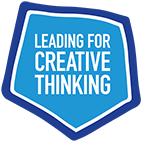School Does Not Kill Creativity
Karwowski, M. (2022). School Does Not Kill Creativity. European Psychologist, 27(3), 263–275. Read the whole article here
Well-known creativity researcher Professor Maciej Karwowski argues that, contrary to Sir Ken Robinson’s assertions, schools do not kill creativity.
Many of you will have seen Sir Ken Robinson’s video asking whether schools kill creativity. You may have seen this animated version of his talk hosted by the RSA. If you have seen it, take time to watch it again. If you have not, now’s your chance!
Summary
The author of our first paper (full download at the bottom of this page), a well-known researcher into creativity Professor Maciej Karwowski, takes a different view, challenging some of the myths that have grown up about schools and creativity.
As a school leader interested in cultivating the creativity of your pupils and staff it will be really helpful if you are confident in advocating for change. Between Ken Robinson and the author of our featured research, Maciej Karwowski, you have some powerful food for thought. The video and article will also provide you with some stimulating materials for the professional development of colleagues.
Based on a wide range of research, the author offers seven propositions about the relationships between creativity and the ways schools are organised.
- Creative abilities are drivers of not brakes on school achievement.
- The negative attitudes toward creative students sometimes observed in schools usually concern a small and particular group of creative students: those who are most impulsive and do not conform with school rules or norms for behaviour.
- The processes and habits of mind associated with creativity support learning.
- Creative learning occurs when students can discover new, meaningful knowledge with others.
- School education supports – albeit likely to a different degree – both the development of intelligence and of creativity.
- Both creative and learning processes are most effective when accompanied by agency and value: feeling confident and valuing creativity and learning are instrumental for generating and directing motivation.
- In both creativity and learning processes, self-regulation is vitally important.
Reflecting Together
Which of Maciej Karwowski’s arguments do you find most persuasive and why? How could you use these in your own context?
To what extent do Ken Robinson’s arguments made several decades ago still seem relevant today?
- Which myths about creativity will it be helpful for you as a leader to challenge and how best might you do this?
- You might like to check out the resource below from Creative Thinking in Schools: A leadership playbook to stimulate your discussions.
